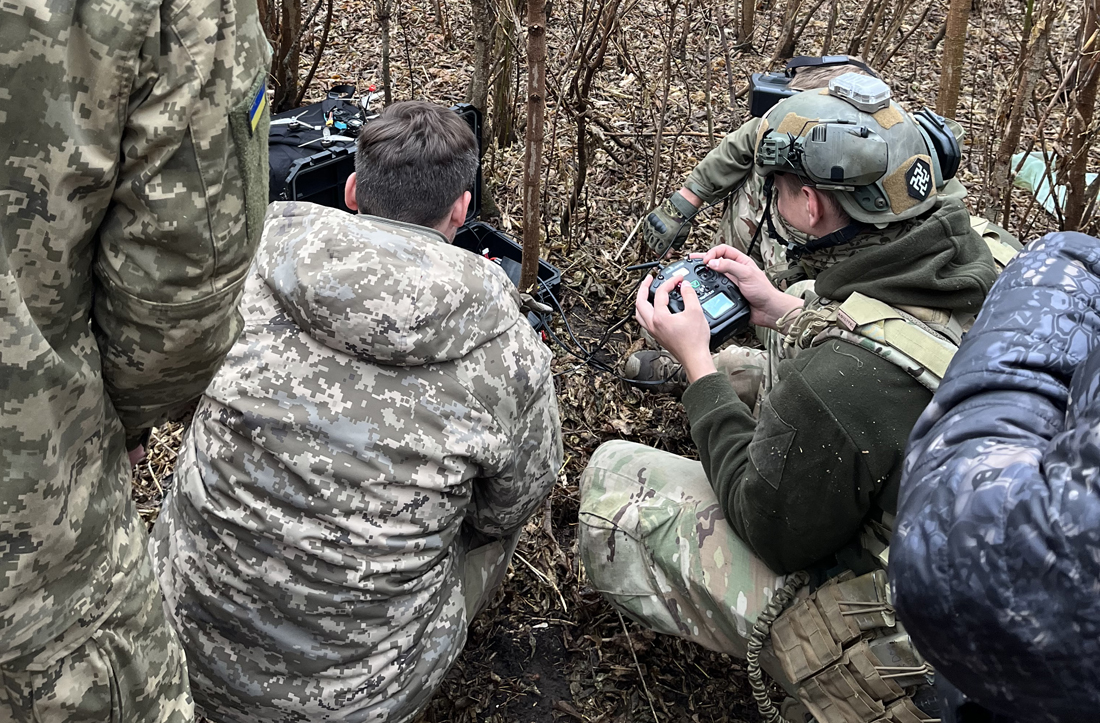Bitcoin is off on one of its runs, it seems. Congratulations to all who bought and held.
It is now trading at all-time highs in 30 different currencies around the world, currencies representing more than 60% of the world's population. How about that for a thought?
From China and India to Congo and Sudan, it's like a Noel Coward song.
In U.S. dollars, we are flirting with US$60,000, still roughly 15% from the peak of US$69,000, the all-time high back in late 2022.
In British pounds, the all-time high was around £48,000. We are touching on that now.
Meanwhile, MicroStrategy Inc. (MSTR:NASDAQ), which we suggested as a means to play Bitcoin via a traditional broker and avoid the FCA-created headaches of buying and investing in Bitcoin in the UK, is going great guns. US$960 now. It was US$350 when we first recommended it in the summer.
Is it too late to buy?
No.
I haven't been asked on TV to talk about it yet. See me on the box; then you can start getting concerned that the top is near. (Here's one from BBC Daily Politics toward the end of a previous cycle. Chief Economist Dr Savvas Savouri.)
There is no doubt that the market is hot, hot, hot at the moment, and when markets get this hot, that usually means it's time to back off. Cripes, the amount of excitement on social media is screaming run away. But Bitcoin is like one of those metals — tungsten or tantalum — which can withstand abnormally high levels of heat. The evidence of previous bull markets is that bitcoin gets overbought and stays overbought.
I have repeatedly argued that the risk with Bitcoin is not owning it; it is not owning it. That hopefully makes sense in print. The potential of this thing is so abnormally huge. Why would you not want to have a position?
We are talking about the most technologically brilliant system of money ever invented. Own a piece of the pie.
Why Bitcoin Will Supercede Other Monies
Remember the old rhyme:
Money is a matter of functions four:
A medium, a measure, a standard and a store.
National currencies are a good-ish medium of exchange — within national borders. But even then, they have their shortcomings. They are useless for micropayments. The smallest amount you can pay in the UK is 1p. Most banks and credit card companies won't even process amounts that small. Even medium-sized transactions can be problematic.
I wasted about an hour of my life this morning on the phone to Lloyds Bank as their security blocked a transfer of £3,950 that I was trying to make. In the grand context of things, that is not a huge sum, but Lloyds' alarms went off, and that was it. One hour gone. (During my peak productive time, too. That's one of the reasons this missive is late).
I have repeatedly argued that the risk with Bitcoin is not owning it; it is not owning it.
But for cross-border transactions, national currencies are crap. Forex fees, paperwork, slow transaction speeds.
If I want to send a payment to someone who operates with a different currency of, say, £1 via a bank, the costs are prohibitive. Revolut is my only option, and that has issues. If I want to send a micropayment of, say, one-tenth of a cent, it is just impossible.
But industries based around micropayments are a huge area of potential growth, especially in a world of artificial intelligence and the internet of things: streaming, apps, games, in-app and in-game purchases, rewards, likes, donations, tipping, credit card verification, identity verification, wifi access, public document access, libraries, parking, phone calls, public transport, pay-per-use in cloud computing, exchange of or access to information via the internet of things, content licensing, ad-free browsing, access to news and journalism. These are all areas that will see enormous use for micropayments.
National currencies do not enable the micropayment economy; they are a barrier to it, especially across borders.
At the other end of the scale, somebody just transferred the Bitcoin equivalent of US$1.3 billion for a fee of US$2. It took a minute or two. No forms, permits, or declarations were required.
You can send huge amounts or tiny amounts of money across borders for a fraction of the effort. Bitcoin is a good medium of exchange for the internet. It will only get better.
And What a Store of Value!
The pound has lost a third of its purchasing power just since 2020, according to Truflation. Since January 2020, Bitcoin has gone from £5,000 to almost £50,000.
Which is the better store of value?
Measured in the constant that is gold, the pound has lost 90% of its purchasing power just this century (Gold was £150/oz in 1999. Today, it is over £1,500/oz). Meanwhile, since its inception in 2009, bitcoin has been the world's best-performing asset. So what if it's volatile?
Finally, we have the last two functions of money: measure and standard. A measure - in other words, a unit of account — needs to be constant to be effective. National currencies, because of the constant debasement, fail in this regard. Statisticians and economists have to resort to "inflation-adjusted dollars," but not everybody agrees as to what inflation actually is, never mind the inflation rate.
Bitcoin has not attained widespread unit of account status yet, but its finite supply will, eventually, make it a more constant unit. As for standard, that is coming too - whether as a standard of deferred payment or a standard as in the gold standard. Its independence and ever-increasing purchasing power will see to that. But this evolution, even if inevitable — technology is destiny, after all — will take many years yet, which is another reason I argue that it is not too late to take the orange pill.
This evolution, even if inevitable — technology is destiny, after all — will take many years yet, which is another reason I argue that it is not too late to take the orange pill.
By the way, there are many people who are so sure that bitcoin is going to a million dollars; they are now measuring the bitcoin price thus: US$0.05m. How about that for a unit and a standard?
The point I am eventually trying to get to is this. Institutions and individuals tend to hold their savings in fiat dollars, pounds, euros, or yen. Corporations keep their treasuries in fiat. In doing so, even with interest, you are losing 5 to 10% per annum to currency debasement. This is guaranteed. Imagine being a Japanese corporation holding your treasury in yen.
Michael Saylor, meanwhile, in keeping the corporate treasury of Microstrategy in bitcoin, indeed issuing paper to buy more bitcoin, has 10x his company's valuation in four years. Microstrategy has gone from a US$1.4 billion to a US$14 billion market cap.
Do you not think other CEOs will follow suit?
Bitcoin is becoming an online savings vehicle, the default online savings vehicle - ahead of fiat. When other large corporations and billionaires start keeping their treasuries in Bitcoin as a norm — we are still a few years from that — then is when the price moonshots and hyperbitcoinisation happens.
Of course, hyperbitcoinisation may not happen. Then again, maybe it will.
Where and When Does This Bull Market End?
I have mentioned before there are four typical phases to a Bitcoin cycle.
-
There's the Quiet Accumulation. Few outside of the bubble of ardent Bitcoiners take notice as it discreetly creeps up.
-
The Frenzy and Blow-Off Top. The price rises accelerate. There is a rush to buy. The media is all over it. Everyone on social media is crowing. There's a huge row about whether Bitcoin is in a bubble or not. See 2013, 2017, and 2021 for more details.
-
The Monster Correction. Bitcoin loses over 70% of its value. Economists who missed the boat go on telly and declare they were right, ignoring the fact that the price to which bitcoin corrected is several hundred percent above where the quiet accumulation phase began.
-
The Frustrating Consolidation. Bitcoin goes into a period of range trading, consolidating the gains of the previous bull market. This is a period of relative quiet, at least by Bitcoin standards. There are rallies that get many excited but prove to be false dawns. Investors get frustrated by the grinding action. The media loses interest. Many forget about it, and so we gradually drift into another Quiet Accumulation phase.
We are now in the early stages of phase two. This typically comes around halvings, but the ETFs appear to have brought it forward.
So what's next, and when does this bull market end?
There are some obvious numbers to look for. US$69,000, the old high. There will be resistance there. As we move towards that number we can expect some selling. Expect volatility.
But after US$69,000, everyone who ever bought Bitcoin ever and held is in profit. How about that for a thought?
Then US$100,000. It is such a big, round number — like US$1,000 and US$10,000 before it. I'm inclined to think we get there this year.
On the downside, there should be some support around US$52k, with the next line in the low- to mid-40s.
Bitcoin bear cycles (stage 3 above) tend to last about a year and consolidations about another year. Bull markets tend to last two to three years. This one began 15 months ago. There will be wild whipsaws on the way, but I suggest this phase has a good year to go before it's done.
Three years ago, US$69,000 felt too expensive. It doesn't anymore. I think this bull market ends with Bitcoin at six figures.
The evidence of previous bull markets is that we overshoot to the upside. But don't expect not to get thrown about along the way.
A Final Thought
I first heard about Bitcoin in December 2010. It was 20c. I didn't really look into it; I just thought it sounded like a cool idea. When I came around to the idea of buying, the price kept going up. I got outbid for some physical bitcoins on eBay, I remember.
I couldn't bring myself to buy something after it had doubled and tripled. It went to US$32. Then, it corrected all the way to US$2. I still didn't buy it. I had lost interest, I think.
People were giving me coins at this stage. Trying to get me into it. Then the price started going up again. It went to US$200, then US$1,200. I ended up writing a book about it. Even though I had a position, I never put in the amount of money I should have because I couldn't bring myself to buy something that had gone up so much.
I could be a stupendously rich billionaire now, but I was scared off by the price rises. I'm fine, by the way. You don't need to worry about me. But I have a fraction of what I might have had. I got hacked as well, but that's another story.
In December 2017, with Bitcoin at US$5,000, I went on the BBC Daily Politics show to talk about it. Over the next month, it quadrupled to US$20,000 before going into one of its bear phases.
Even buying at the very top of that cycle, you would still have tripled your money.
The moral of all this: don't be put off by the rising price.
If you'd like to read more by Dominic Frisby, please subscribe at The Flying Frisby.
| Want to be the first to know about interesting Cryptocurrency / Blockchain investment ideas? Sign up to receive the FREE Streetwise Reports' newsletter. | Subscribe |
Important Disclosures:
-
Statements and opinions expressed are the opinions of the author and not of Streetwise Reports, Street Smart, or their officers. The author is wholly responsible for the accuracy of the statements. Streetwise Reports was not paid by the author to publish or syndicate this article. Streetwise Reports requires contributing authors to disclose any shareholdings in, or economic relationships with, companies that they write about. Any disclosures from the author can be found below. Streetwise Reports relies upon the authors to accurately provide this information and Streetwise Reports has no means of verifying its accuracy.
- This article does not constitute investment advice and is not a solicitation for any investment. Streetwise Reports does not render general or specific investment advice and the information on Streetwise Reports should not be considered a recommendation to buy or sell any security. Each reader is encouraged to consult with his or her personal financial adviser and perform their own comprehensive investment research. By opening this page, each reader accepts and agrees to Streetwise Reports' terms of use and full legal disclaimer. Streetwise Reports does not endorse or recommend the business, products, services or securities of any company.
For additional disclosures, please click here.
Dominic Frisby Disclosures: This letter is not regulated by the FCA or any other body as a financial advisor, so anything you read above does not constitute regulated financial advice. It is an expression of opinion only. Please do your own due diligence and if in any doubt consult with a financial advisor. Markets go down as well as up, especially junior resource stocks. We do not know your personal financial circumstances, only you do. Never speculate with money you can’t afford to lose.




































